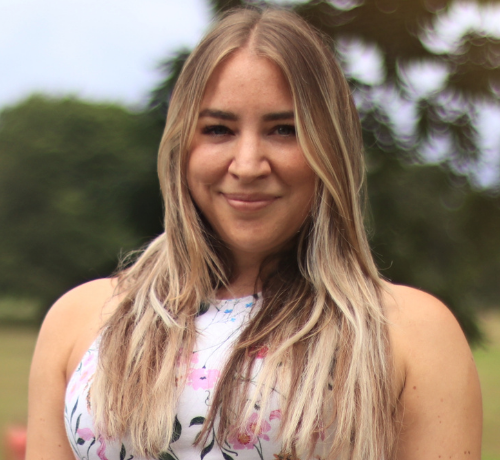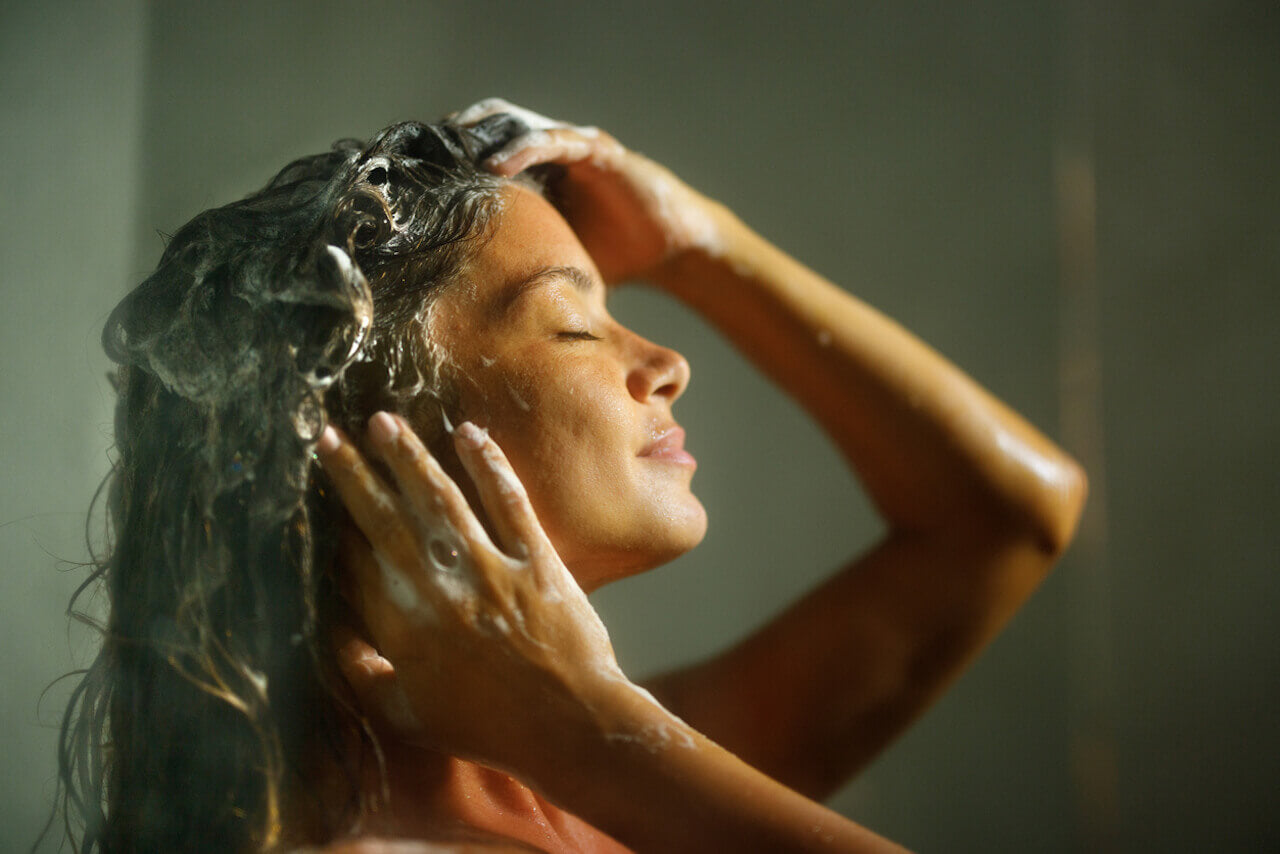Nothing puts a damper on an otherwise-good day like a smattering of white flakes on your head and shoulders—not to mention the itchy scalp that comes with it. If you're dealing with itchy, dry skin and flaky patches on your scalp on a regular basis, the most important first step is to determine whether you're experiencing regular dandruff or scalp psoriasis, a more serious chronic skin condition.
Read on to learn the difference between these two health conditions and how to spot one versus the other. Plus, find out which products you need for itchy scalp relief so every day can be a good hair day.
Scalp Psoriasis vs. Dandruff: The Basics
Before digging into the nitty-gritty details of scalp psoriasis and dandruff, it's important to understand the differences between them. While scalp psoriasis and dandruff can present with similar symptoms, such as the familiar flaky, scaly skin on the scalp along with redness and itching, their causes are very different.
The simple version is that scalp psoriasis is believed to be an immune system condition that is often chronic, lifelong and very painful, while dandruff is usually a less-serious condition that may come and go or resolve on its own. Scalp psoriasis has no known cure and can be difficult to treat, while dandruff is generally treatable with non-prescription solutions and usually does not require serious medical intervention.
What Is Scalp Psoriasis?
Like dandruff and seborrheic dermatitis, scalp psoriasis symptoms include white flakes and itchy skin. But despite its similar symptoms, it is a much more serious (and incurable) chronic inflammatory condition of the immune system that can affect the scalp in addition to other areas of the body. It can cause an itching, burning sensation that causes overall discomfort.
Even though psoriasis symptoms appear anywhere on the body, studies show that approximately half of cases exhibit symptoms on the scalp. These cases are referred to as scalp psoriasis.
"Scalp psoriasis is an itchy, red rash on your scalp," Dr. Ali explained. "People who have scalp psoriasis may have flaky, red patches on their scalp that often look like scales."
The way scalp psoriasis manifests can vary, though: "Some people with psoriasis will have red patches, others may have thick plaques, and others will have areas of white scales," Dr. Ali said. "[The condition] can cause the scalp to itch or bleed."
Read: Can Scalp Psoriasis Lead to Hair Loss? We Asked a Dermatologist
What Are the Symptoms of Scalp Psoriasis?
Scalp psoriasis can cause flaky skin, scaliness and itching, but there are more intrusive symptoms that can cause greater discomfort and may require more urgent medical treatment. Cases of severe psoriasis, and even some cases of mild to moderate scalp psoriasis, can trigger frustrating and obvious symptoms if left untreated.
- Thick, hard, red or silvery plaques or "scales" on the skin as a result of dead skin cells. In cases of severe scalp psoriasis, gray, silvery, hard plaques develop on the skin.
- Excessive itching that can create a need to scratch the scalp, resulting in the scales tearing and leaving scars
- Small red bumps on the scalp that increase over time
- Noticeable hair loss as a result of ongoing scalp irritation
Shop: GRO Revitalizing Scalp Massager
What Causes Scalp Psoriasis?
The cause of psoriasis isn't fully understood, but current knowledge indicates that the immune system could be involved. It's thought that an overactive immune system interferes with healthy skin cells, accelerating their life cycle. White blood cells that normally fight off diseases start to attack the skin instead of protecting it. As a result, the scalp itches and becomes irritated.
Experts believe that psoriasis is caused by both environmental and genetic triggers, but more research is needed to understand what can cause it. Psoriasis can be hereditary, and psoriasis statistics show that most people diagnosed have light skin. It also tends to run in families, so if you have a relative who suffers from it, then you might, too.
How Is Scalp Psoriasis Treated?
Unfortunately, scalp psoriasis can't be cured, and because it is a chronic condition, those who suffer from it are likely to experience flare-ups. Scalp psoriasis isn't as easy to treat as dandruff, but there are things you can do to help. Mitigation and treatments include:
- Understanding and avoiding scalp psoriasis triggers to help prevent flare-ups and slow skin cell growth, including extreme hot or cold weather, harsh hair and scalp treatments, extreme stress, tobacco and alcohol
- Avoiding scratching—especially when scalp psoriasis flares up—to prevent exacerbating the condition and causing additional discomfort or infection
- Corticosteroid topical creams or ointments (or steroid injections, for more severe cases)
- Light therapy to suppress an overactive immune system
- Salicylic acid to remove scaling and prepare the skin to absorb moisture
- Natural supplements and herbals including aloe and fish oil to moisturize the skin and prevent irritation
What Is Dandruff?
Dandruff is a form of skin irritation . Dandruff symptoms are well-studied and well known, and pretty much everyone is familiar with the white, scaly flakes of skin that can end up sprinkled on your neck and shoulders. But what exactly is dandruff? VEGAMOUR spoke to Dr. Naheed A. Ali, MD, author at USA Rx, for an explanation.
"Dandruff is an excess of scales on the scalp [caused] by an imbalance of the skin's healthy bacteria," Dr. Ali explained. "Dandruff is not a fungus [itself]; it's caused by an imbalance in the skin's bacterial (fungal) population. When the normal balance is disturbed, white, yellow, or gray dandruff-like scales appear on the scalp."
Though the symptoms often look and feel the same, dandruff comes in different forms:
- Dandruff caused by dry skin cells is the most common form of scalp irritation, affecting as many as 50 million people in the U.S. alone. It is characterized by whitish or yellowish flakes of dead skin on the scalp that may fall from the head onto the shoulders. Dandruff can cause scaly skin, itchiness, irritation, redness and inflammation.
- Seborrheic dermatitis is on the same spectrum of disease as dandruff but comes with more noticeable and disruptive symptoms. It is characterized by itchy, irritated and oily skin that causes skin cells to flake off of the scalp. Seborrheic dermatitis typically affects areas of the skin that contain a high amount of oil glands, so it can occur not only on the scalp but also on the face, chest and back.
- Contact dermatitis, sometimes called contact eczema, is another skin condition that is triggered when the skin comes into contact with an external substance, creating redness and irritation. Substances that cause contact dermatitis on the scalp include harsh shampoos, allergens or other products that irritate and cause redness. It usually resolves when the substance is eliminated, for instance, if you switch to gentle products like a gentle shampoo and conditioner to reduce inflammation.
In addition to physical discomfort, even those who suffer from mild dandruff can experience low self-esteem as a side effect. An important part of destigmatizing dandruff is understanding what causes it and how it manifests.
What Are the Symptoms of Dandruff?
A flaky scalp is perhaps the most visible (and most stigmatized) part of dandruff, but beyond dandruff flakes, the condition can come with a host of other symptoms. These include:
- Oily scalp
- Redness on and around the scalp
- Especially dry or flaky skin in cold, low-humidity weather
- White, gray or yellowish flakes of skin falling from the scalp
- Skin infections from scratching
- Hair loss from prolonged scalp irritation
Learn: Does Dandruff Cause Hair Loss? A Dermatologist Explains
What Causes Dandruff?
When dandruff is acting up, chances are that there are multiple factors at play. "A major cause of dandruff is a lack of sebum, or oil, on the scalp," Dr Ali explained. "This can be caused by medications, genetics, poor hygiene, or other medical conditions. It can also be caused by stress, poor diet, and excessive combing."
Hormones can also encourage dandruff to develop—in fact, it's common in teenage years as a result of the oily scalp that often accompanies puberty. Even babies can suffer from seborrheic dermatitis dandruff in their earliest months, which is often referred to as cradle cap. Experts believe that cradle cap is triggered by too much—or not enough—sebum (which is produced by the scalp's oil glands) combined with a fungus called Malassezia yeast.
In less severe cases, including many cases of cradle cap, dandruff will resolve on its own. If you're worried about persistent dandruff and aren't seeing improvements, speak to a doctor about potential treatments and interventions.
Learn More: Are Dandruff and Dry Scalp the Same Thing?
How Is Dandruff Treated?
Because it is common and well-studied, there are numerous highly accessible interventions that can help treat dandruff. Mitigation techniques and treatments include:
- Using a gentle anti-dandruff shampoo and conditioner to cleanse the scalp and avoid further irritation
- Applying topical treatments to soothe and moisturize the scalp
- Changing your hair-washing frequency or routine
- Managing stress
- Avoiding harsh products or treatments that could irritate the scalp, creating overly oily skin or dry skin
- Adjusting your diet to incorporate more beta-hydroxy acids (BHAs), such as broccoli, cauliflower, and apples, according to Dr. Ali
When you want to treat dandruff, it's important to understand the severity of your condition.
- Mild Dandruff: For mild dandruff symptoms, use a gentle shampoo and conditioner or anti-dandruff shampoo to prevent scalp irritation and restore a healthy balance of oils to the scalp.
- Moderate Dandruff: For moderate dandruff (with lots of itching and a fair amount of flakes), a prescription, medicated over-the-counter formula can help. Dr. Ali recommends using a medicated conditioner that contains ingredients such as salicylic acid (to eliminate scaling) or ketoconazole (to kill fungus).
- Severe Dandruff: For severe dandruff, including seborrheic dermatitis, a medicated, prescription topical treatment is usually used as a first line of defense. If that doesn't work, your doctor may prescribe medications in pill form.
When to Seek Professional Help
The secret to healthy hair is a healthy scalp, so it's important to treat psoriasis and dandruff proactively to prevent triggering or exacerbating hair loss. If your scalp continues to itch from dandruff or seborrheic dermatitis even after trying a medicated prescription shampoo, it's time to consult with a medical professional.
If you're living with (or think you may have) scalp psoriasis, you should be in contact with a trusted doctor. In mild cases, a medicated prescription shampoo might help enough to reduce inflammation, but you should see a doctor for further guidance. In moderate cases, a medical professional will need to be involved, since treatment can be a bit more complicated and will likely be ongoing.
If you're dealing with severe psoriasis, medication will be an important part of your treatment protocol to help slow cell growth and limit the number of skin plaques. If you're experiencing severe symptoms, you might want to discuss certain suppressive medications (such as methotrexate) with a health professional to reduce the upsetting effects.
If your symptoms are accompanied by loss of hair, or if the skin on your scalp is very swollen, talk to your doctor to discuss your options.
Learn: What Can Cause an Itchy Scalp?
Scalp Psoriasis vs. Dandruff: The Takeaway
Some conditions are unstoppable—they arrive unannounced and can completely change the way we live in our skin. Both dandruff and scalp psoriasis can be quite unpleasant, but reducing stress to lower your overall tension level can help maintain the integrity of your hair.
Dandruff isn't curable, but healthy habits and a hair wellness routine that takes whole-body health into account can help reduce symptoms. Similar to dandruff, you can't cure scalp psoriasis, but treatment is widely available and can accommodate a range of severity levels.
Using products that will be kind to your hair can help relieve symptoms of both dandruff and scalp psoriasis, leaving your hair looking and feeling good so you can live your life flake-free. Remember that your relationship with your hair is for life, so treat it right—and stay tuned to the VEGAMOUR blog for the latest tips and knowledge on how to give your hair the care it deserves.
#include-related-slider#
More from VEGAMOUR
- Shop: Sulfate-Free Shampoos for Oily Hair
- Can You Use Hyaluronic Acid for Hair?
- Dealing With Dandruff? Try These Products
- My Hair Looks Thin When Greasy — What Can I Do?
- This Dry Shampoo Is the Best I've Ever Tried
Photo credit: Ron Lach/Pexels
Back


















